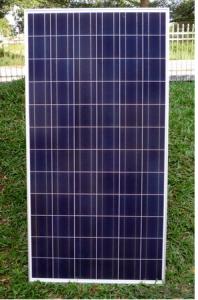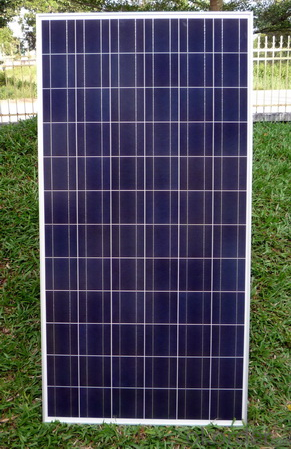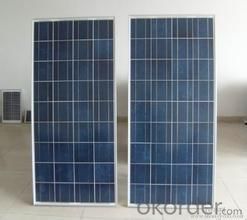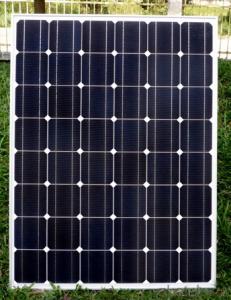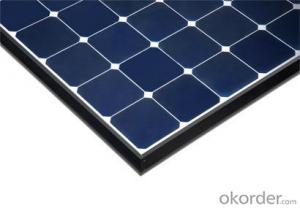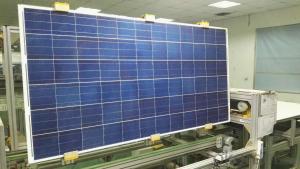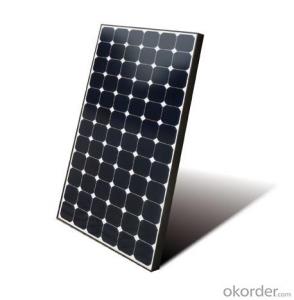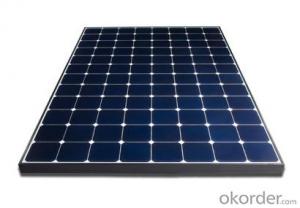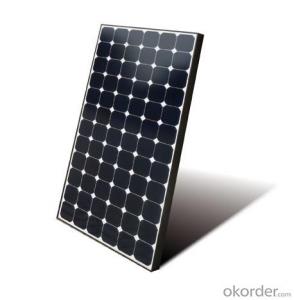American Solar Energy Systems CNBM Poly 70W Off Grid Solar System with 10 Years Warranty
- Loading Port:
- Shanghai
- Payment Terms:
- TT OR LC
- Min Order Qty:
- 10 watt
- Supply Capability:
- 1000 watt/month
OKorder Service Pledge
OKorder Financial Service
You Might Also Like
Specification
CNBM Poly 70W Off Grid Solar Sytem with 10 Years Warranty
Product description
Off-the-grid is a system and lifestyle[1] designed to help people function without the support of remote infrastructure, such as anelectrical grid. In electricity, off-grid can be stand-alone power system or mini-grids typically to provide a smaller community with electricity. Off-grid electrification is an approach to access electricity used in countries and areas with little access to electricity, due to scattered or distant population. The term off-the-grid (OTG) can refer to living in a self-sufficient manner without reliance on one or more public utilities. People who adopt this lifestyle are called off-gridders.[2]
The concept of a sustainable off-grid community must take into consideration the basic needs of all who live in the community. To become truly self-sufficient, the community would need to provide all of its own electrical power, food, shelter and water. Using renewable energy, an on-site water source, sustainable agriculture and vertical farming techniques is paramount in taking a community off the grid. A recent concept design by Eric Wichman shows a multi-family community, which combines all of these technologies into one self-sufficient neighborhood. To grow the community you simply add neighborhoods using the same model as the first. A self-sustained community reduces its impact on the environment by controlling its waste and carbon footprintElectrical power can be generated on-site with renewable energy sources such as solar (particularly with photovoltaics), wind, micro hydro, geothermal; with a generator or Micro combined heat and power with adequate fuel reserves. Such a system is called a stand-alone power system. In addition, it is possible to simply eliminate electric power such as in Old Order Amish and Old Order Mennonitecommunities.
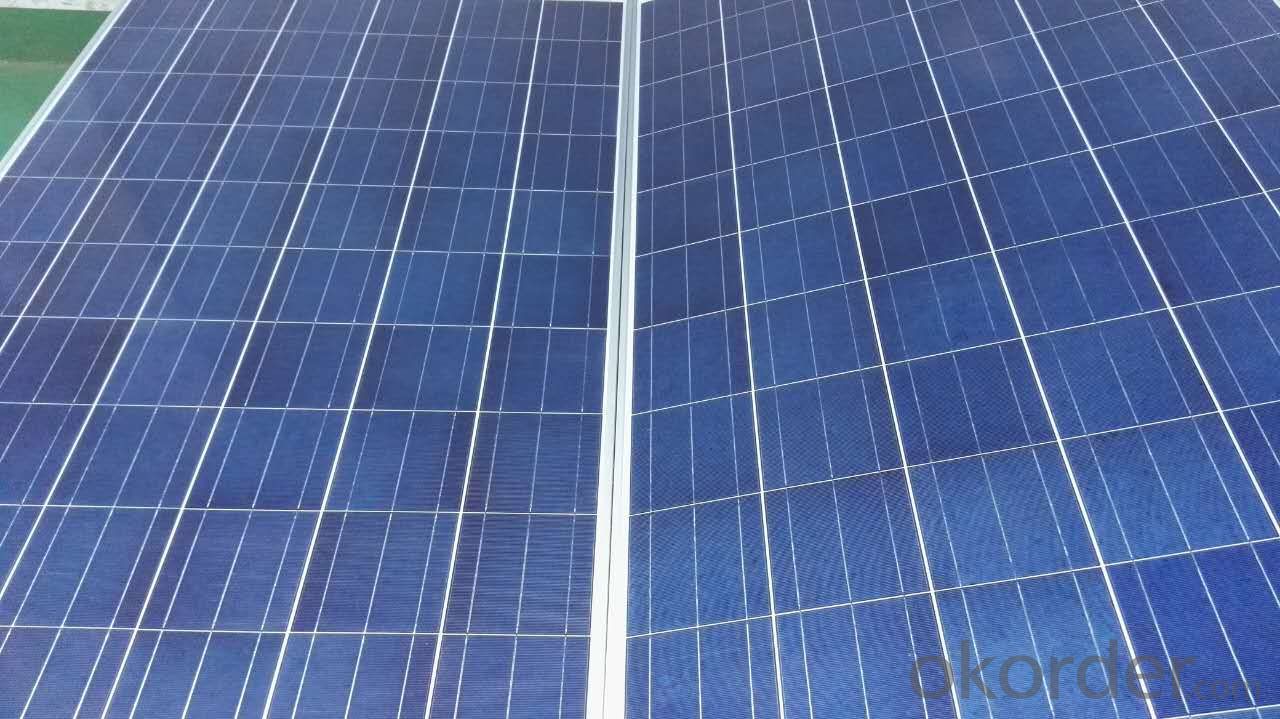
Application
Residential
Commercial
Industrial
Feature
Off-the-grid homes are autonomous; they do not rely on municipal water supply, sewer, natural gas, electrical power grid, or similar utility services. A true off-grid house is able to operate completely independently of all traditional public utility services. The idea has been recently popularized by certain celebrities including Ed Begley, Jr.[3] who stars in the Living with Ed[4] television show on the Home & Garden Television (HGTV) network. Actress Daryl Hannah promotes off-grid living and constructed her home in Colorado according to those principles, as does survival expert and Dual Survival co-star Cody Lundin,[5] who lives in a self-designed, passive solar earth house in the high-desert wilderness of Northern Arizona, collecting rainwater, composting waste, and paying nothing for utilities.[6][7]
Packaging
With carton and box
- Q: Is solar energy reliable?
- Yes, solar energy is reliable. Solar panels have a long lifespan and require minimal maintenance, making them a dependable source of renewable energy. With advancements in technology, solar power systems have become more efficient and can generate electricity even in cloudy or low-light conditions. Additionally, solar energy is abundant and widely available, making it a reliable and sustainable alternative to fossil fuels.
- Q: Do solar energy systems require batteries?
- No, solar energy systems do not necessarily require batteries.
- Q: How do solar energy systems impact the electricity grid?
- Solar energy systems can have a positive impact on the electricity grid by reducing the demand for traditional fossil fuel-based electricity generation. As more solar power is generated and fed into the grid, it helps to diversify the energy mix and decrease the reliance on non-renewable sources. Additionally, solar energy systems can help alleviate peak demand periods, especially during sunny days, leading to a more stable and reliable grid. However, the intermittent nature of solar power can also pose challenges for grid operators in terms of managing fluctuations and ensuring grid stability.
- Q: How does the performance of solar panels vary based on the altitude?
- The performance of solar panels can vary based on altitude due to several factors. One of the main factors is the amount of sunlight that reaches the panels. As altitude increases, the atmosphere becomes thinner, allowing for more direct sunlight to reach the panels. This can result in increased efficiency and power output of the solar panels. Additionally, the temperature at higher altitudes tends to be lower, which can also positively impact the performance of solar panels. Solar panels operate more efficiently at lower temperatures, as excessive heat can cause a decrease in their efficiency. Therefore, the cooler temperatures at higher altitudes can help to maintain the panels' optimal operating temperature, leading to improved performance. On the other hand, altitude can also have some negative effects on solar panel performance. At higher altitudes, there may be an increase in snowfall or ice formation, which can obstruct the sunlight and reduce the efficiency of the panels. Additionally, extreme weather conditions such as high winds or hailstorms that are more prevalent at higher altitudes can potentially damage the panels, affecting their performance. It is important to note that the overall impact of altitude on solar panel performance may vary depending on specific geographical locations and local climate conditions. Therefore, it is recommended to consider these factors and consult with experts or conduct thorough research when installing solar panels at different altitudes to maximize their performance.
- Q: What is the role of solar-powered ventilation systems in solar energy systems?
- The role of solar-powered ventilation systems in solar energy systems is to improve energy efficiency and enhance indoor air quality. These systems use solar energy to power fans or vents, which help circulate air and remove excess heat or moisture from buildings. By utilizing renewable energy, solar-powered ventilation systems reduce reliance on traditional power sources and contribute to a more sustainable and eco-friendly approach to cooling and ventilating spaces.
- Q: Can solar energy systems be used in powering sports stadiums?
- Certainly, sports stadiums can be powered by solar energy systems. In fact, numerous stadiums worldwide have already begun implementing solar energy systems to fulfill their energy requirements. To harness sunlight and convert it into electricity, solar panels can be installed on stadium rooftops, parking lots, or open areas. The primary benefit of utilizing solar energy to power sports stadiums is its sustainability and cost-effectiveness. Solar energy is a renewable energy source that doesn't emit any greenhouse gases during operation, making it environmentally friendly and assisting in reducing carbon footprint. Additionally, once the initial investment is made to install solar panels, the ongoing operational costs are relatively low, resulting in significant energy bill savings for the stadium. The size and structure of sports stadiums make them excellent candidates for solar energy systems. The stadiums' expansive surface areas provide ample space for installing a substantial number of solar panels, which can generate a significant amount of electricity. Furthermore, the open spaces surrounding the stadium allow for optimal sunlight exposure, ensuring maximum energy generation. Moreover, solar energy systems can be integrated with other technologies to enhance efficiency and functionality. For example, battery storage systems can be utilized to store excess energy generated during the day and use it during nighttime events or periods of low sunlight. This ensures a continuous and reliable power supply to the stadium, regardless of weather conditions or the time of day. In conclusion, solar energy systems can certainly be employed to power sports stadiums. They offer a sustainable and cost-effective solution to meet the energy requirements of these large facilities while also reducing their environmental impact. With further advancements in solar technology and decreasing costs, it is expected that more sports stadiums worldwide will embrace solar energy as their primary power source in the future.
- Q: Can solar energy systems be used for powering electric vehicle charging stations?
- Yes, solar energy systems can be used for powering electric vehicle charging stations. By installing solar panels, the energy generated from the sun can be harnessed and used to charge electric vehicles, reducing the reliance on traditional grid electricity and promoting clean, renewable energy sources. This combination of solar energy and electric vehicle charging stations helps to reduce carbon emissions and contribute to a more sustainable future.
- Q: Can solar energy systems be used for powering electric vehicle wireless charging systems?
- Yes, solar energy systems can be used to power electric vehicle wireless charging systems. Solar energy systems, such as solar panels, capture sunlight and convert it into electricity. This electricity can be used to power various devices and systems, including electric vehicle wireless charging systems. By installing solar panels on a building or a dedicated solar carport, the energy generated from the panels can be used to charge electric vehicles wirelessly. The solar panels collect sunlight, which is then converted into electricity that can be stored in batteries or directly fed into the charging system. Solar-powered wireless charging systems offer several advantages. Firstly, they provide a sustainable and renewable source of energy, reducing dependence on fossil fuels. This contributes to a cleaner and greener environment, as solar energy is a clean and emission-free power source. Secondly, solar-powered charging systems can be installed in remote locations where access to the power grid may be limited. This allows for the convenient charging of electric vehicles in areas without traditional infrastructure. Furthermore, solar energy systems can help reduce the overall energy costs associated with charging electric vehicles. By harnessing the power of the sun, owners of electric vehicles can enjoy lower operating costs and potentially even earn money by selling excess energy back to the grid. In conclusion, solar energy systems can certainly be utilized for powering electric vehicle wireless charging systems. They offer a sustainable, renewable, and cost-effective solution for charging electric vehicles while reducing the environmental impact and promoting energy independence.
- Q: How long does a solar energy system last?
- A solar energy system typically lasts for about 25 to 30 years.
- Q: Are there any insurance requirements for installing a solar energy system?
- Yes, there are insurance requirements for installing a solar energy system. While the specific requirements may vary depending on the location and individual circumstances, it is generally recommended to have appropriate insurance coverage in place when installing a solar energy system. This is important as it helps protect your investment and provides financial security in case of any unexpected damages or accidents. One of the most common insurance requirements for solar energy systems is property insurance. This covers any damage or loss to the physical components of the system, such as solar panels, inverters, and batteries. Property insurance typically protects against risks like fire, theft, vandalism, and natural disasters. Additionally, liability insurance is often necessary when installing a solar energy system. This coverage helps protect you from potential legal claims arising from accidents or injuries that may occur during the installation or operation of the system. Liability insurance may also provide coverage for any damage caused to neighboring properties. In some cases, if you are financing your solar energy system through a loan or lease, the lender or leasing company may require specific insurance coverage as a condition of the agreement. These requirements may include certain coverage limits, additional insured endorsements, or even specific insurance providers. It is important to consult with your insurance provider and solar installer to ensure that you have the appropriate insurance coverage in place before installing a solar energy system. They will be able to guide you through any specific requirements or recommendations based on your location and individual circumstances.
Send your message to us
American Solar Energy Systems CNBM Poly 70W Off Grid Solar System with 10 Years Warranty
- Loading Port:
- Shanghai
- Payment Terms:
- TT OR LC
- Min Order Qty:
- 10 watt
- Supply Capability:
- 1000 watt/month
OKorder Service Pledge
OKorder Financial Service
Similar products
Hot products
Hot Searches
Related keywords
